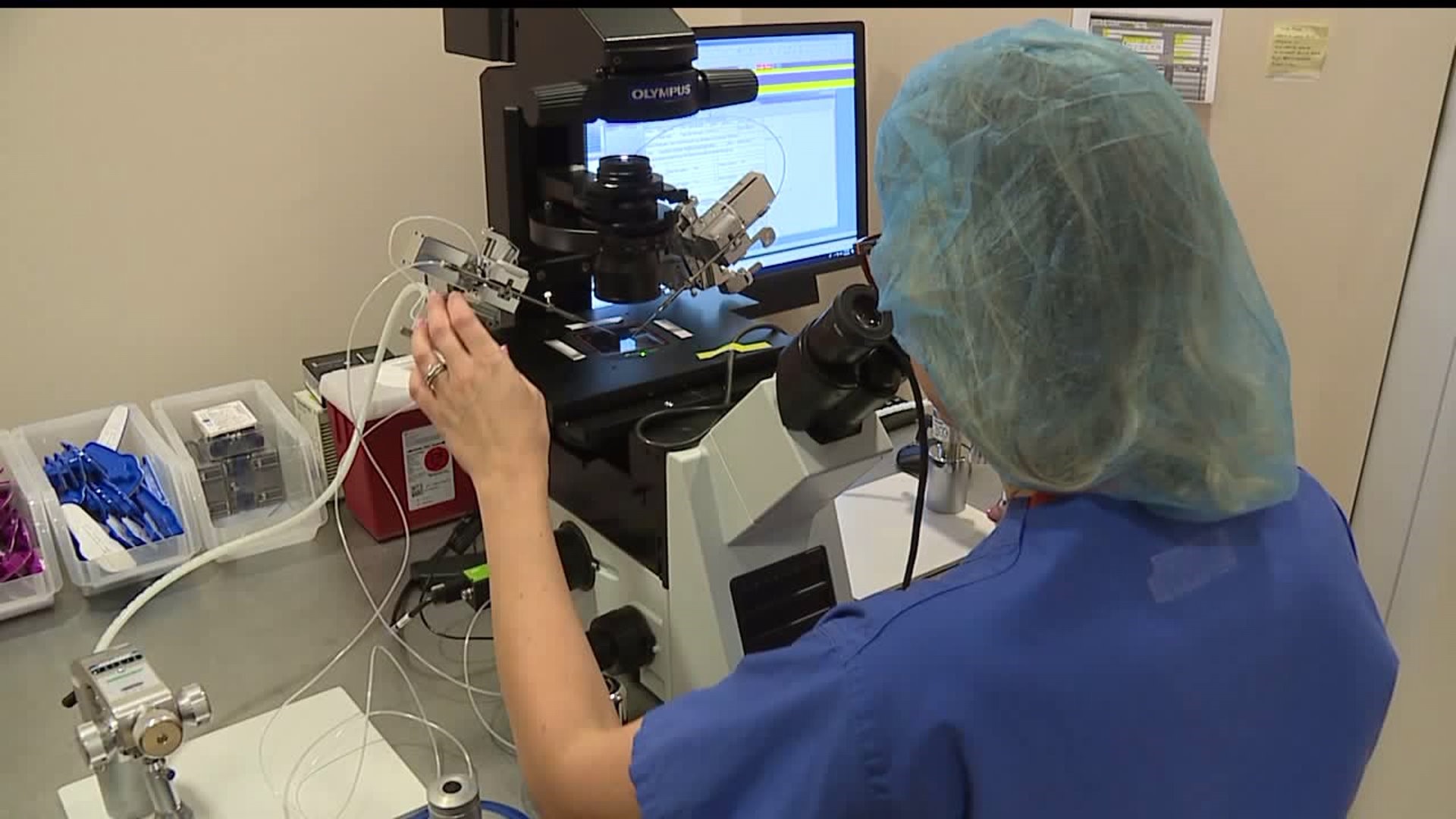FOX43 FOCAL POINT: INFERTILITY - When it comes to figuring out what infertility treatment is right for you, there are many options to research.
In our FOX43 Focal Point: Infertility, we’re breaking down the options and financial responsibility of some of the treatments that are available.
Doctor Issac Sasson is highly trained in reproductive medicine and invited FOX43 to see something very few ever get to: an up-close view of the IVF process at the Shady Grove Fertility Embryology Laboratory in Chesterbrook, Chester County.
Sasson says the IVF laboratory is about generating a controlled environment. "We are bringing sperm and egg together and sometimes injecting the sperm directly into the egg."
IVF (In Vitro Fertilization) is the most successful treatment you can do using your own eggs and sperm, or donor sperm. It costs roughly $13,000. It's one of the most expensive treatments and also most complicated.
IVF starts with stimulating the ovaries with pills and injectables for about 14 days. The process should produce more eggs.
The next step includes a trigger shot that will set ovulation in motion. This is followed by the egg retrieval and fertilization of the egg and sperm in a lab.
This process will create an embryo. The embryo’s develop at the Shady Grove lab for 5 full days in an incubator.
The incubator has four sections that are all under the watch of a camera for five days. Each normal embryo has a 65% chance of delivering.
Each surviving embryo is tested before being inseminated back into the woman.
The IVF process has a nearly 40% chance of success in women under 35. It’s the best chance of success in any current method.
IUI (Intrauterine Insemination) is often where women start when seeking medical treatment. IUI involves putting the sperm directly in the uterus and hoping it finds an egg.
IUI is a lot cheaper than the IVF at just $1,000 - $3,000. It’s also more likely to be covered by insurance and less likely to work.
IUI and IVF treatments were not an option for April Brenner.
"My husband was just really against IVF. He felt that if it is meant to be, it will happen. God has a plan for us."
April was convinced she could no longer conceive naturally. She has two older children but recently developed a condition making it very difficult to get pregnant.
April reached out to Naomi Whittaker, an OBGYN Physician at Holy Spirit Hospital in Camp Hill, Cumberland County.
Whittaker suggests using a calendar called the Creighton Model to track your cycle.
When using the Creighton Model you use stickers to track your cycle, menstruation, patterns of menstruation, dry days and ovulation.
All of the tracking will hopefully lead to discovering your most likely fertile window.
Whittaker says this is especially useful for women who do not ovulate on a normal schedule. "You can guess and say that women ovulate on cycle day 14, but that is pretty rare that a woman is going to consistently ovulate on that cycle day, especially if she has infertility issues."
Turns out April is one of the women that do not ovulate on day 14. Mixed with charting and treatment for her other medical issue, April is happy to say she’s expecting.
Other options for someone who wants to try naturally is to lose weight or change your diet before seeking help.
If you plan on trying IVF treatments, there are grants and financial assistance programs available. Check resolve.com for more information.
WEDNESDAY (9/25/2019) ON FOX43 News at 10:00PM
Lynda Weed will visit multiple support groups that are available to help women during and after the process of infertility treatments.
She will dive into the strain the battle can have on your marriage.



